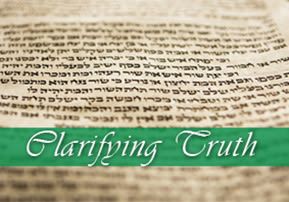
Bereishit: Clarifying Truth
Parshat Breishit: As long as a person still has doubts as to what is true and the correct path for him to follow, his evil inclination can easily bring him to err or fail...

One of the definitions of correct hitbodedut is yishuv hadaat, self composure. We learn in Likutei Moharan II, Torah 10: "The reason people are distant from G-d and not seeking His proximity is only that they lack self composure. And so the main principle is to strive for self composure and ask ourselves, where do all the bodily amenities and appetites of this world lead to?"
Self composure can only be attained through the practice of hitbodedut. For during the hour of hitbodedut one has the time to settle one's mind "well" as Rebbe Nachman says, in regard to the purpose of all the physical desires of this world and so forth. Rabbi Levi Yitzchak Bender of blessed memory, one of the elders  of Breslov, described the hour of hitbodedut: "An hour of self composure". Rabbi Levi Yitzchak rarely described the practice of hitbodedut in a different fashion. Rebbe Nachman promises that through this hour of "self composure" one will surely do teshuva!
of Breslov, described the hour of hitbodedut: "An hour of self composure". Rabbi Levi Yitzchak rarely described the practice of hitbodedut in a different fashion. Rebbe Nachman promises that through this hour of "self composure" one will surely do teshuva!
 of Breslov, described the hour of hitbodedut: "An hour of self composure". Rabbi Levi Yitzchak rarely described the practice of hitbodedut in a different fashion. Rebbe Nachman promises that through this hour of "self composure" one will surely do teshuva!
of Breslov, described the hour of hitbodedut: "An hour of self composure". Rabbi Levi Yitzchak rarely described the practice of hitbodedut in a different fashion. Rebbe Nachman promises that through this hour of "self composure" one will surely do teshuva! Self composure is exceedingly essential for every prayer, and in particular for prayers incorporating self-evaluation.
Strong and decisive
The essence of self composure is for one to clarify the truth in his own mind until it becomes crystal clear what Hashem demands of him in every area of life. This self composure must be lucid and strong enough to dispel doubt and so decisive so that it won’t change in time. As we find in Sichot Haran (Rebbe Nachman's Discourses), "… even if he enjoys occasional self composure, the certainty of thought does not remain with him. And even the minimal self composure he has achieved is neither strong nor decisive. Therefore he does not grasp the folly of this earthly world. Yet if a person attains the ability to think clearly in a strong and decisive manner, he understands the follies and vanities of this world.”
To believe in oneself
One of the most essential factors in achieving strong and resolute self composure is the belief in oneself. In other words, one believes that what has become clear to him as the truth is indeed the truth. In this manner, nothing and no one can cause him to doubt the truth that he has realized. Furthermore, he must be so strong-willed in this, until his resolve to achieve his goal will not be shaken no matter how distant that goal may be or how difficult it will be in obtaining. Once he knows unwaveringly that he has found the truth, nothing can weaken his determination or budge him from reaching his goal. This is true self composure.
As long as a person still has doubts as to what is true and the correct path for him to follow, his evil inclination can easily bring him to err or fail. It may confuse him so that he chooses to act in an erroneous manner, or it may draw him into despair by convincing him that his goal is absolutely unattainable. This is why the word "doubt" is equivalent in Hebrew numerology to the word "Amalek", for doubts are one's inner "Amalek"' causing him to fall, to become weak and sinful. They prevent a person from being consistent in his labors and from accomplishing his ambitions.
The manifest flaw in lack of self composure is more a lack of faith in oneself than a lack of belief in G-d or in the holy Tzaddikim. Everyone must believe in himself; this includes believing that what he learns from the Torah and what he hears from the Tzaddik is true and worth fighting for. He must not give in to any person, but rather he must continue tenaciously until he achieves his goal.
If we observe the Torah in depth, we see that the instances of transgression described within all stem from a lack of self-belief.
For example, Eve was commanded not to eat from the Tree of Knowledge, yet the snake succeeded in enticing her. The snake succeeded because she lacked faith in herself, and therefore began to doubt whether she had indeed heard Adam's warning properly. If she had had total faith that she had heard correctly, she would have known exactly how to behave.
Our holy sages of blessed memory said: The words of a rabbi or the words of his pupils – to who should one believe? G-d (the rabbi) commanded not to eat the fruit of that tree, while the snake (the pupil) said to eat that forbidden fruit. Who should one listen to – the rabbi or the pupil? Surely one should listen to the rabbi. So why then did Eve listen instead to the snake?
Eve was shaky in her belief in herself; she wasn’t certain that she knew the absolute truth. Had she been completely sure of what she had heard, no one could have convinced her to act otherwise! There would have been nothing to talk about and she would not have listened to any words of enticement! The fruit is forbidden – period. She would have told the snake that if he was interested he could talk to her about other things, but the subject of eating from that tree was closed! Yet, because she lacked that self composure and complete faith, her defenses were weak.
Adam heard from G-d Himself that it is forbidden to eat from the Tree of Knowledge. Had he believed in himself, he wouldn’t have been tempted. He’d have proclaimed: The fruit is forbidden! That is the truth! What I heard from G-d is the one and absolute truth! Then and there, the story would have come to a close with no dialogue and no negotiation! It would have been utterly impossible for anyone to entice him, even if Eve had indeed become part of the enticement.
King Saul is another example of insufficient truth clarification and believing in oneself. He failed to entirely destroy the Amalekites as he had been commanded, for he did not believe in himself. "And Samuel said, "Even if you are small in your own eyes, are you not the head of the tribes of Israel? And the Lord anointed you as king over Israel (Samuel II, Chapter 15)." In this passage, Samuel rebukes Saul for the flaw of not having faith in himself that Hashem had anointed him king so that he would choose what was good in the eyes of G-d and not listen to the people. Hashem commanded him to destroy Amalek in its entirety, including all their flocks and possessions. If Hashem commanded him to destroy Amalek in its entirety, that's exactly what he should have done. This is a lesson for all of us, for posterity.




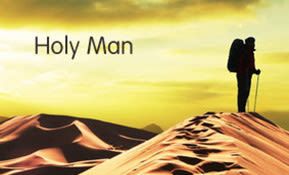
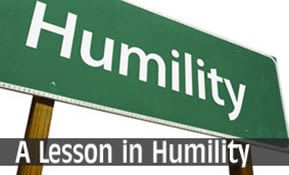



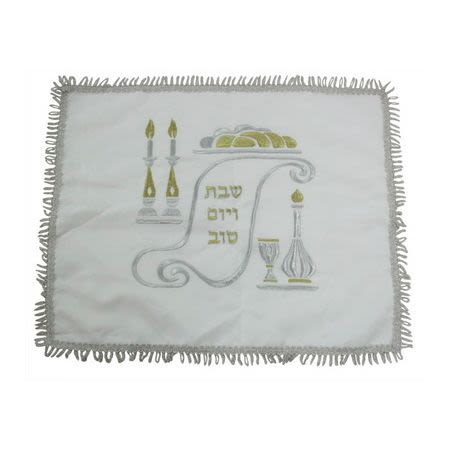
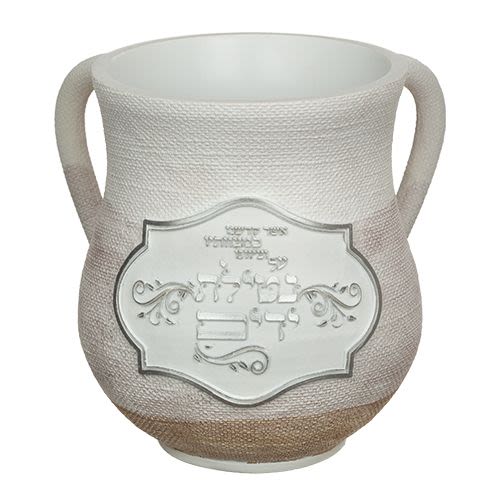
Tell us what you think!
Thank you for your comment!
It will be published after approval by the Editor.